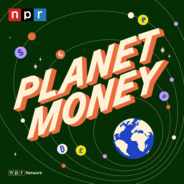There are tons of markets that don't exist because people just don't want to allow a market – for whatever reason, people feel icky about putting a price on something. For example: Surrogacy is a legal industry in parts of the United States, but not in much of the rest of the world. Assisted end-of-life is a legal medical transaction in some states, but is illegal in others.When we have those knee-jerk reactions and our gut repels us from considering something apparently icky, economics asks us to look a little more closely. Today on the show, we have three recommendations of things that may feel kinda wrong but economics suggests may actually be the better way. First: Could the matching process of organ donation be more efficient if people could buy and sell organs? Then: Should women seek revenge more often in the workplace? And finally, what if insider trading is actually useful? This episode was hosted by Mary Childs and Greg Rosalsky. It was produced by Willa Rubin and edited by Jess Jiang. It was engineered by Cena Loffredo. Fact-checking by Sierra Juarez. Alex Goldmark is Planet Money's executive producer.Help support Planet Money and get bonus episodes by subscribing to Planet Money+ in Apple Podcasts or at plus.npr.org/planetmoney.Learn more about sponsor message choices: podcastchoices.com/adchoicesNPR Privacy Policy

Wirtschaft
Planet Money Folgen
Wanna see a trick? Give us any topic and we can tie it back to the economy. At Planet Money, we explore the forces that shape our lives and bring you along for the ride. Don't just understand the economy – understand the world.Wanna go deeper? Subscribe to Planet Money+ and get sponsor-free episodes of Planet Money, The Indicator, and Planet Money Summer School. Plus access to bonus content. It's a new way to support the show you love. Learn more at plus.npr.org/planetmoney
Folgen von Planet Money
355 Folgen
-
Folge vom 07.02.2024Morally questionable, economically efficient
-
Folge vom 02.02.2024Groundhog Day 2024: Trademark, bankruptcy, and the dollar that failedIt's Groundhog Day, and the eyes of the nation have turned to a small town in western Pennsylvania. And, just like last year, all anyone can talk about is Punxsutawney Phil! It is impossible to find a news story that is not about one furry prognosticator.Well, almost impossible...Once again, our Planet Money hosts find themselves trapped in the endless Groundhog Day news cycle, and their only way out is to discover an economics story from Groundhog Day itself interesting enough to appease the capricious Groundhog Gods! So rise and shine campers (and don't forget your booties) as hosts Kenny Malone and Amanda Aronczyk scour the news of February 2nds past, to try to find the perfect story.This episode was hosted by Kenny Malone and Amanda Aronczyk. It was produced by Sam Yellowhorse Kesler. It was edited by Keith Romer, and engineered by Valentina Rodríguez Sánchez. It was fact-checked by James Sneed. Our executive producer is Alex Goldmark.Help support Planet Money and get bonus episodes by subscribing to Planet Money+ in Apple Podcasts or at plus.npr.org/planetmoney.Learn more about sponsor message choices: podcastchoices.com/adchoicesNPR Privacy Policy
-
Folge vom 31.01.2024The Chicken Tax (Classic)Note: This episode originally ran in 2015.German families in the 60s loved tasty, cheap American-raised chicken that was suddenly coming in after the war. And Americans were loving fun, cheap Volkswagen Beetles. This arrangement was too good to last.Today on the show, how a trade dispute over frozen chicken parts changed the American auto industry as we know it.This episode was reported by Robert Smith and Sonari Glinton. It was produced by Frances Harlow. Help support Planet Money and get bonus episodes by subscribing to Planet Money+ in Apple Podcasts or at plus.npr.org/planetmoney.Learn more about sponsor message choices: podcastchoices.com/adchoicesNPR Privacy Policy
-
Folge vom 29.01.2024Bonus: Janet Yellen on Wait Wait...Don't Tell Me!Our friends at NPR's news quiz Wait Wait...Don't Tell Me! recently had a very Planet Money guest on their show: Treasury Secretary Janet Yellen. They asked her about smoking pot, her extremely high scores in Candy Crush, and when to expect the Harriet Tubman $20 bill.Today, we're sharing an excerpt of that episode with you, along with some exclusive questions just for Planet Money listeners.You can listen to the full show and subscribe to Wait Wait...Don't Tell Me! wherever you find your podcasts.Help support Planet Money and get bonus episodes by subscribing to Planet Money+ in Apple Podcasts or at plus.npr.org/planetmoney.Learn more about sponsor message choices: podcastchoices.com/adchoicesNPR Privacy Policy
